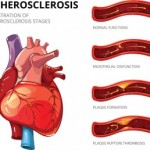Leptin and Ghrelin
The Hormone Leptin
The person who has more fat deposits, produces more leptin while one who has less fat produces less leptin. High blood levels of leptin inform the brain to reduce appetite (pertaining to high fat stores), which in turn results in decreased food intake. Low leptin levels (noticed in people with less fat) tell the brain to increase the appetite. Low leptin levels are noticed in people, usually after dieting. This situation results in increased appetite, increased intake of food and an increase in body fat stores. This again informs the brain to reduce the appetite, resulting in reduced food intake. The hormone leptin is one of the important hormones that promote weight gain after a diet. Leptin does not allow you to starve (low leptin levels stimulate the appetite).
Now, you must be thinking that high levels of leptin in obese people must reduce their appetite. But in fact, obese people develop leptin resistance as their body stops responding to leptin. Obese do produce large amounts of leptin but they are unable to reap its benefits. Emotional over-eating or binge eating makes the hypothalamus insensitive to the message conveyed by leptin. As hypothalamus ignores high leptin levels, food cravings and weight gain lead to obesity.
The Hormone Ghrelin
Hormone ghrelin also acts on the hypothalamus. This hormone tells hypothalamus that the body needs food. Ghrelin plays an important role in increasing your appetite. Skinny (lean) people produce more ghrelin than obese people. Ghrelin levels keep on changing during the day. High levels of ghrelin can be noticed before a meal. Significantly high levels of ghrelin can be noticed after a diet program. This is the reason why dieters experience unmanageable hunger leading to overeating and weight gain after a diet. Actually, your stomach also produces peptide YY3-36, a hormone which controls the release of ghrelin. Skinny people produce more YY3-36 than obese.
Role of these Hormones in Weight Loss
Now that you know about the role of leptin and ghrelin in stimulating the appetite and maintaining the satiety, you should aim to increase the production of leptin without increasing fat stores and also try to increase the sensitivity of the hypothalamus to leptin. You may incorporate 'leptin foods' in your diet. Consult your physician before opting for 'leptin diet'.
Poor sleeping habits usually worsen 'leptin resistance'. It is interesting to study the relationship between leptin and the sleep hormone 'melatonin'. You must have noticed that overweight people often fall victim to sleep apnea. If melatonin production is affected, leptin production also gets affected. So improving sleep habits can help maintain good leptin levels. You should consult your doctor regarding melatonin supplements and leptin supplements. Avoiding bad fats (saturated fat) and including good fats (like fish oil, canola oil, olive oil) in diet can help improve leptin production and can help prevent leptin resistance as well. Similarly, regular exercise and low sugar diet can help prevent or overcome leptin resistance.
By having small and frequent meals you can increase the body's production of peptide YY3-36. This is the simple secret of weight loss. Simple dietary and lifestyle changes can thus help achieve the goal of weight loss.
Related Articles
-
How To Get Abs - Flat Belly Fundamentals
A flat belly and tightly toned abdominals are sure to be the highlight
-
Understanding Carbohydrates And Why You Need Them!
There is a lot of talk out there about low carbohydrate diets and with
-
How To Cheat & Still Lose Weight
Who says you have to deprive yourself of all deliciousne
-
What Is The Best Way To Burn Belly Fat To Be Ready For Summer? Find Out Here!
Summer is quickly approaching, and that
-
Reduce High Cholesterol Naturally
Cholesterol is a fatty substance produced by the liver to help mee
-
Could I Possibly Get Gallstones In The Process Of Dieting?
Various studies show that quick weight l
- DON'T MISS
- Do Diet Pills to Help You Lose Weight?
- 3 Easy Mind Tricks to Help You Beat Cravings
- Incorporate This Advice To Meet Your Weight Loss Targets
- Benefits of Lower Ab Exercises
- Surprise! These 5 Foods Actually Help You Lose Weight
- Counting bites leads to weight loss
- Gastric bypass surgery may reverse type 2 diabetes due to improved insulin sensitivity
- Weight Loss Diet Plan: Jason Hunter Carb Rotation Diet Plan
- Planning To “Detox” Before The Summer? Skip It And Try This Instead!
- Is kratom the Right Supplements for Me?




